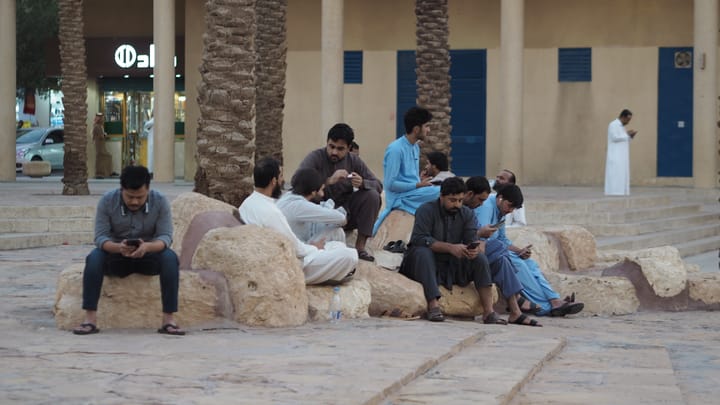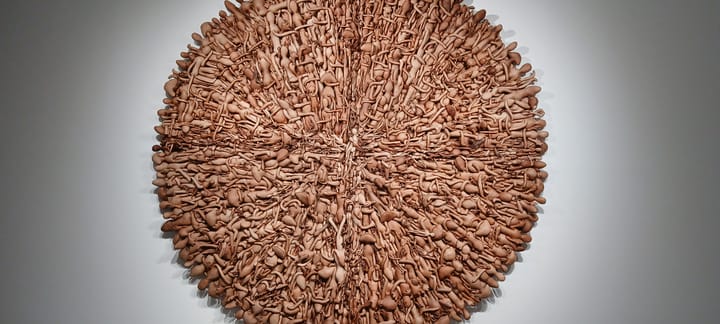have you heard the one about … : kinda a follow-on from the yobbism post
With serendipitous timing Adam Shatz’s Writers and Missionaries: Essays on the Radical Imagination (Verso, 2023) arrived today, serendipitous because of what I left out of said yobbism post. I had Oliver Bottini say it instead. There it came down to no longer belonging to a community of whatever sort and not missing it but instead missing the feeling that what one said, did and wrote was in some sense an answer to that community, had a necessity, the necessity of being answerable.
This is Levinas’s definition of responsibility. It has an ethical dimension that is absolute. God, for Levinas, is an individual to whom one is answerable.
In turn we are put in mind of Lingis’s categorical imperative. I made it the basis of the last phase of Minus Theatre’s work.
Lingis takes categorical imperative from Kant for whom it was, in Foundations of the Metaphysics of Morals (Grundlegung zur Metaphysik der Sitten, 1785), those foundations or that groundwork, the basis of moral obligation. Lingis takes this literally. He invokes the ground, the earth the other stands on, the air the other breathes, the fire of life in her, the water life in him depends on, the elements. Here, like Levinas, he says the basis of ethical behaviour is in a disposition towards the absolute other, God-the-individual.
He has us in a supermarket in a country where we don’t speak the language. Someone in front at the checkout turns to us. They smile in recognition at our mutual helplessness before the elemental dependence we share, both of us. We smile back in recognition of what the elements make imperative: we stand on the ground, we breathe the air, we are warm with life and our bodies, watery objects, move and flow in time. Perhaps we are not conscious of this but the point is that we can recognise it, we can recognise it in our disposition towards the other, as an absolute, an imperative.
Or the other calls on us by name, Hey, Simon! And I find I have to answer without the mask of a social role but in my own name. I affirm in so answering that I am answerable. I choose for this, in my own name, I exist, Simon.
Or we are ill and illness pushes us up tight against the body. It is unescapable, the unavoidable fact of our existence, its dependencies absolute. Take them away and we cease.
In Minus Theatre, a development of our practice that I didn’t carry over into the exegesis but was the reason I called it Minus Theatre: Scenes | Elements, this elemental imperative was to be consciously recognised. It took time. One actor faced another across a distance that became significant since it contained air, the air both were breathing, ground, the earth that let them stand, warmth, the warmth from their breath and bodies, and the moisture, the wateryness of those bodies in their movements. And then one would move … and the other would become answerable to that movement. The movement need be no bigger than a smile.
Yes, there is this community and the question it posed to me too to which I was answerable. I was after all responsible for this group, Minus Theatre, coming together; although it was my practice for a PhD. it was a group practice that that work followed.
And there is the community into which I politically awakened in 1981. This was not only the year of Halt All Racist Tours, the year we protested the visit of the Springboks to New Zealand. This was the year the union, Actors’ Equity, a poor thing now, took all actors out on strike, technical staff joining them in solidarity. (Some of the history is here.) Theatre’s were closed, the professional theatres, the profession a poor thing too, the community theatres. Almost unspeakable now, there had been 10 of them, in all the major centres, the communities, in NZ. And to speak about it is what that political awakening asked from me. To Whom Can I Speak Today?–the words of a poem adapted by Lambchop as the following lyric, also covered by David Byrne, the link for which at the Dalhousie University bears this note, (A dispute over suicide, Egypt, before 2000 BC):
To whom can I speak today? The brothers they are evil But the old friends of today They have become unlovable To whom can I speak today? The gentleness has perished And the violent man has come down on everyone To whom can I speak today? The wrong which roams the earth There can be no end to it It is just unstoppable Death is in my sights today And when a man desires To see home after many years in jail February through December We had such a tragic year As separate as the fingers Or suddenly As one As the hand And the violent man comes down on everyone And the violent man comes down on everyone And the violent man comes down on Everyone
…
It’s odd to see how much of my work is a struggle with the idea of community. Political philosopher Roberto Esposito brings the ideas of community and immunity together. They are from the same root, munus, meaning an individual’s service or duty to the public body, including and going up to the sacrifice of his or her body, for example in the gladiatorial arena. And I suppose it could be seen to include self-sacrifice in the political arena or self-immolation.
Esposito does something similar to Benjamin, in suggesting that when state-violence enters into the moral relations of a cause it becomes yobbism or, in the old style, totalitarian. He points out that if a positive value is attached to us to distinguish us from them the result is totalitarianism, so that the positive way through is to choose for the negative, the nothing, the void, which must then itself be annulled.
With regard to community, Esposito writes, “It’s only through the abolition of its nothing that the thing can finally be fulfilled. Yet the realization of the thing, which is necessarily phantasmic, is precisely the objective of totalitarianism.”
…
I’d heard the one about the death of the author. From the eponymously titled essay by Roland Barthes, 1967: “It is language which speaks, not the author” … To assign an author is to foreclose on the possible meanings of the writing.
I hadn’t heard the one that Shatz, in Writers and Missionaries, follows it up with: Foucault defines the author as “the principle of thrift in the proliferation of meaning.”
Foucault two years later undoes what Barthes does: not the author’s suicide but a principle of thrift applies.
Barthes is calling for meanings to proliferate, Foucault calling for de-proliferation. The reader is a means to proliferation, the author a means to de-proliferation, of meaning: a sponge, a filter or screen.
…
Shatz reads as the antidote to Claire Dederer’s Monsters: A Fan’s Dilemma. That book set out the dilemma of our choices as consumers being raised to the status of ethical decisions. The dilemma is what we choose to avow has too much meaning, meaning that continues as it prolongs the meaning that preceded it, meaning that we cannot shake, choosing to or choosing not to, not to see, read, serve, work, listen, feel and so on. Shatz says,
“In this book, I try to describe how such works [as have changed the way we think about the world as have Wright’s Native Son, Lévi-Strauss’s Triste Tropiques, Derrida’s Of Grammatology, Barthes’s Camera Lucida, Said’s Orientalism, Lanzmann’s Shoah] came into being: their position in intellectual history, but also their place in the lives of their creators. I make no attempt to present their authors as models for contemporary emulation or social media branding.”
… and,
“The flaws that I describe may, for some, call into question the value of my subjects’ achievements. That is not my view. It is impossible to study intellectual history without suffering heartbreak from time to time. (Just think of Arendt on Little Rock, Chomsky on Cambodia, Foucault on Iran, Angela Davis on East Germany, Sartre on Israel, Malcolm X on gender, or any number of writers on Stalinism.)” … “The purpose of these essays is not to establish a moral balance sheet but rather to explore the difficult and sometimes perilous practice of the engaged intellectual: the wrenching demands that the world imposes on the mind as it seeks to liberate itself from various forms of captivity.”
Explaining what to liberate means, Sartre:
“And he captured the desire for freedom that, as he saw it, lies behind all creative writing. Freedom, he insisted, is ‘at the origin’ of writing, since ‘no one is obliged to choose himself as a writer.’ Writing, therefore, ‘is a certain way of wanting freedom; once you have begun, you are committed.'”
…
3% writes D. to me, the 97% need to be able to other 3% of its number, just to be safe. And, therefore, the 3% have this service to perform of being the inside-outsiders.
What if no matter how many are othered there is no safety to be found?
…
Is it the same thing, human advantage over other humans, as has driven the biological advantage of humans over other animals? And would this not be less technology, technical advancement through prostheses, than social advancement? the need for variation within human community leading to big-brain-edness being therefore the big social brain of humans compared to other species (with perhaps the exception of aquatic mammals and primates who are also social-brained)?
Communities in Esposito’s political deontology have to be destroyed that are improper. These are the ones who abjure social relations, who keep their gifts for themselves, sharing economies. The social organisation crushes them and keeps a blank space where the obligation of relation was, that obligation which led to those services (of munus, munera) rendered within community, the commitments made by individuals to each other. It becomes an immunological space … of nothing given that is not first discounted for being an improper use of time, work, commitment, freedom and so on and displaced by symbolic exchange, by a conventional sign that sits on nothing and so annuls nothing.
For example this library has been made into a council service centre. A fellow librarian was subjected to a complaint regarding roading. I suggested posting it as anonymous on behalf of the complainant on the Auckland Transport website, since roading is not within the remit of council, however, the library is. We are council employees. This has allowed to the service of being a library the addition of extra services to the public.
Librarians here are council officers so I ought to have said that it’s not within our remit to deal with complaints in regard to roads but, I abjure this relation.
Does this mean that librarians form some kind of community on the basis of holding the relation to council in contempt? It would be one where we share amongst ourselves values that do not fit and are improper; it would be an improper community: but council does not go out of its way to crush it. It would rather turn libraries into a sort of parasite.
The reason is the yobbism that prevails prevails in general and librarians are complicit in it. We are not then we but further divide. We are dividual.
The evidence for this yobbism in the library has everything to do with work culture, in the old style, and a downgrading of, professionalism. So it goes to an ethical consideration, the ethical consideration of what constitutes professional practice and practices.
The library has become a parasite on technical culture and it is this that has detrimented library practices, or, as has been said here, destroyed the profession. It can be said then council, through its technical culture and its imposition of a work culture in its place, has brought about the destruction of the professional community.
Now what the object was above in speaking of the place of nothing that replaces community, in the example professional community, is both to draw attention to the void left and how a shifting series of signs nullifies it. Among these can be counted the imposition of work culture that no longer has a chain of command but a reporting line, that is no longer designated library service but is part of connected communities.
Nullification can take the form of doubling and simulating. How we know it’s a double is the plural. There are always small flaws in the simulation. Of course this is how we recognise God’s work as well, by its small cracks, by the irreality that survives in its interstices.
…
We might talk about AI as the grossest yobbism of technical culture.
…
“We, the indivisible divinity that operates within us, have dreamt the world. We have dreamt it resistant, mysterious, visible, ubiquitous in space and firm in time. But we have consented within its architecture tenuous and eternal interstices of unreason to know that it is false.”
— Jorge Luis Borges, “Avatars of the Tortoise”


